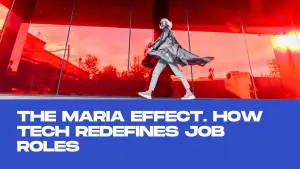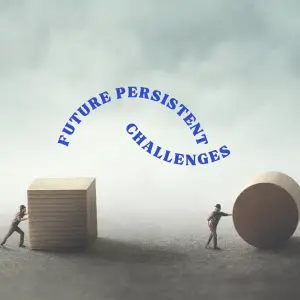When I think about how AI is impacting jobs, I’m reminded of how technology has always changed the norm. Those whose jobs were affected by technology either adapted to the change or, in some cases, hoped that the change wouldn’t affect them. However, hoping that things don’t change is a bad career strategy.
Tech throughout the Ages
Technology can be defined as applying scientific knowledge, skills, and tools to solve problems, accomplish tasks, or achieve specific goals. Throughout history, we have seen technology impact jobs. Take, for example, the Gutenberg Printing Press, invented around 1440. This new technology could produce up to 3,600 pages per workday, compared to forty by hand-printing and a few by hand-copying. While it created job losses for scribes, illuminators, and bookbinders, it also launched the manufacturing of paper, the development of ink, woodblock printing, and the invention of eyeglasses, along with many more jobs. There are countless other examples of how technology impacted jobs, but at the same time, many others took advantage of the new opportunities it created.

What Happened to Maria?
My professional tech recruiting career started in 1996 at the largest staffing firm in the U.S. Our busy office consisted of over 40 recruiters, three fax machines, and dozens of file cabinets for the hundreds of resumes that our office received each week from our newspaper ads. Maria, our office admin, was primarily tasked with making copies of the resumes, putting them in our mailboxes, and then the original would go on the file cabinet. Then, little by little, PC Techs and Windows NT Admin (the most common job applicants at the time) used email to attach their resumes or would apply via Monster and CareerBuilder (the first innovations that I heard would replace recruiters), so the fax machines and file cabinets became obsolete. I moved to a different office, so I’m not sure what happened to Maria, but with her work ethic, attention to detail, and people skills, I imagine that she got a better job.
Skills Over Jobs
If we want to be prepared for the oncoming change, we need to get good at looking around corners. You have to recognize that the latest tech innovations didn’t come from one person. If I ask you who Alexander Bell or Thomas Edison is, you will tell me about the invention they are credited for. However, if I ask you who invented the computer, internet, or microchip, that would be a bit harder. That’s because those inventions came from a group of people working together. In his book “Team of Teams,” U.S. Army General Stanley McChrystal argues that “innovation and problem-solving become the products of teamwork, not a single architect.” He goes on to emphasize that “adaptability, not efficiency, must become our central competency.” It’s no wonder that tech companies like Microsoft, Amazon, Netflix, Apple, and many others hire people who are team-oriented and can fit their agile cultures. Those tech companies know that change is constant, and their people love to experiment, pilot new things, and are okay with failing fast and course-correcting. The mindset of being rigid and heavily focused on process has become the fax machine for fast-moving companies.

Future Persistent Challenges
Jeff Bezos shared that he frequently gets asked about what will happen in the future. However, he rarely gets the question: “What’s NOT going to change in the next 10 years?” He said, “The second question is actually the more important of the two because you can build a business strategy around the things that are stable in time. In our retail business, we know that customers want low prices, and I know that’s going to be true 10 years from now. When you have something that you know is true, even over the long term, you can afford to put a lot of energy into it.”
In my field of tech recruiting, I can personally attest that while tech has completely changed the way we recruit over the last 25 years, the basic problem is still the same. Hiring managers want to hire the best people in the fastest possible time. I don’t see that changing in the next 10 years (or longer).
McKinsey & Company’s article “Generative AI and the future of New York” points out that “while gen AI presents significant challenges, it offers even greater opportunities. Although the technology may accelerate the automation of certain elements of jobs, it could also free workers to undertake tasks that involve applying expertise to decision-making and planning or managing and developing people.”
With that in mind, we can’t go wrong if we focus on growing our skills for the present and the future, such as being data-driven decision-makers, improving our presentation skills, and enhancing our coaching/mentoring abilities.
“The best way to predict the future is to create it.” -Abraham Lincoln.
Need career coaching advice for your specific situation?
Click here to learn more: https://paperbell.me/ruben-garcia

